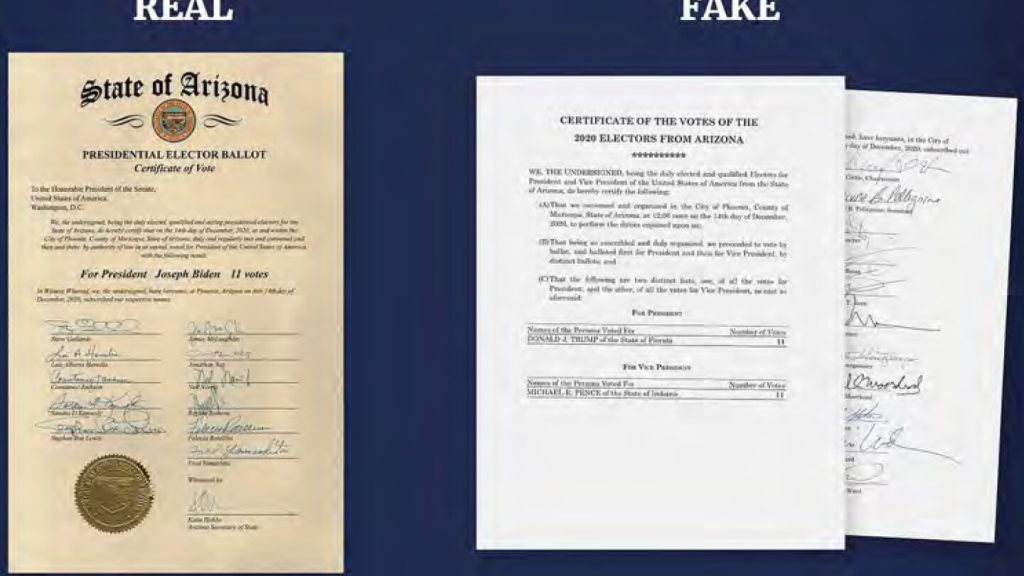An Arizona grand jury has indicted 18 people for posing as electors and falsely claiming that former President Donald Trump won the state in the 2020 election. This move is seen as a deterrent to future challenges to the 2024 election. The indictment is part of a broader campaign to prevent a repeat of the misinformation spread by Trump and his allies following the 2020 election, which culminated in the January 6th Capitol attack. The penalties for those involved in spreading lies about the election include disbarment, censure, sanctions, libel penalties, and criminal charges in multiple states.
The legal consequences for Trump and his allies, including lawyers, are beginning to pile up. Trump himself is facing federal charges for his efforts to overturn the election and a separate indictment in Georgia. The Supreme Court recently heard arguments regarding Trump’s immunity from prosecution while serving as president, with justices showing reservations over the federal charges. The former president’s “lieutenants” in the challenges to the 2020 election results are also facing consequences, albeit at a slower pace.
The indictments of fake electors in Arizona, Michigan, and Nevada, as well as a wide-ranging indictment in Georgia, have had significant consequences. Arizona’s Democratic Secretary of State, Adrian Fontes, emphasized the seriousness of these actions, stating that bad acts have real consequences. The indictment in Arizona included high-profile figures like Mark Meadows, Rudy Giuliani, and Christina Bobb. Trump was listed as an unindicted co-conspirator in the case.
The legal repercussions for those involved in pushing election misinformation have also extended to Congress. A bipartisan bill signed by President Biden in 2022 makes it harder to submit rival slates of electors, requiring only those certified by a state’s governor to go to Congress for certification. The possibility of alternate electors has been significantly narrowed, reducing avenues for electoral mischief in the future. The 65 Project, an organization dedicated to pursuing legal discipline against lawyers involved in challenging Trump’s 2020 loss, has had an impact on lessening enthusiasm among election deniers for litigation.
The consequences of the ongoing legal actions are seen as essential in deterring future attempts to undermine elections. The charges against the fake electors and other individuals involved in spreading lies about the 2020 election are part of an effort to seek justice for past wrongs and prevent them from happening again. The broader implications of these indictments and legal actions could shape the landscape of challenges to future elections, including the upcoming 2024 presidential election. Despite the slow pace of justice, the punishments handed out to those involved in the conspiracy are seen as a deterrent to similar actions in the future.


